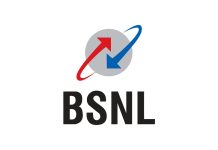
Spotlight on Innovations in Education| TelecomDrive.com
Putting its focus on skill based hiring and pre-employment testing solutions, Mytat is driving a lot of innovations in India in terms of driving and enabling assessment and recruitment programs to hire freshers & professionals for corporates across multiple verticals in India.
Om Narayan Rai, Head-Enterprise Business Solutions and Academia Relations at Mytat speaks with Zia Askari from TelecomDrive.com about the current scenario in pre-employment testing solutions space and what can we expect in the coming year.

Please share some details about Mytat?
Mytat is a leading name in the sphere of skill based hiring and pre-employment testing solutions. It has a database of tests that spans a vast spectrum of conventional and emerging domains of learning and work. Mytat is empaneled with AICTE & helps to connect key stakeholders in the educational sector such as colleges, corporates, and industry experts with students in colleges and vocational educational institutes to provide access to 100s of jobs.
Mytat is an Artificial Intelligence (AI) and Machine Learning (ML) based platform that covers the entire life cycle of a student/candidate. Mytat provides a unified platform to assists students attain real-time industry knowledge and trends in skills requirements & also helps to provide the students with Internships/apprenticeships and other employment opportunities. 500+ organizations such as Amazon, Sapient Nitro, Amdocs, Bank of America, etc have partnered with Mytat for their services & have utilized their assessment and recruitment programs to hire freshers & professionals for multiple job profiles. Apart from the recruitment aspect, Mytat also provides a validated assessment platform that can be used to conduct online exams be it for Schools, Colleges, or even for public sector jobs.
Digital transformation across industries is driving the need for specialised skill sets, your comment?
With two great wars the world has seen, the focus of doing business was on Sales, Operation, Manufacturing and Branding. We can see their dominance in each industrial era. Late but not very late, the world has witnessed Skill as a business from 1980 onwards. However, it has presented a very complicated outlook on the world due to too many non-standardised practices and with no tangible outcome. However, the time wheel has changed its course due to technological advancements, rising needs of the businesses are forcing employers to consider skilling as a continuous process. Now the thrust is not only on skill but also on maximising the individual’s potential.
Digital Transformation is an overdue need and thanks to Corona to force all the stakeholders to adopt, implement it at a fast pace and large scale too. Given this context world in general and industries in specific contexts have realised that we are bound to live in volatility and uncertainty. The only thing that can keep us all going is skilling-reskilling and going even beyond it – enabling humans to achieve their potential.
For example, Today, we see the manufacturing, health care segments – which are very niche in their own way are using it not only onboarding and training but also for critical surgery deliveries, operations using digital interfaces. Nevertheless, the Skill segment is now forced to standardise practices, adapt to futuristic interventions to stay relevant in the digital era.

What are the major challenges faced by employers due to a huge skill gap in India?
While the world’s workable population, especially India here is at its peak, it is surprising to note the shortage of talent, that too when India is the biggest supplier of talent, about 16% of highly qualified migrant workers are from India. This story reflects as is in the Indian context too. Employers are struggling more than ever to fill open positions. As per Manpower Group’s study Forty-five per cent of employers say they can’t find the skills they need, and for large organizations (250+ employees) it’s even higher, with 67% reporting talent shortages in 2018. Similar views can be gathered from the Skill India Report.
Skill Gaps force organizations to begin the onboarding with training, however, with high attrition rates prevailing in the country, the ROI is way below the expectation. These pieces of training range from a week to a year and a half long as well in their duration. These timelines take away the advantage of an employer on aggressive delivery commitments.
Employees also find it difficult to visualise the career path for themselves and it is a mammoth exercise for leaders as well to manage expectations in absence of a clear road map.
Who needs to re-skill and upskill, which is the age group that stands to benefit from these reskilling opportunities?
Experienced professionals, especially from 5 years of experience onwards need to be part of reskilling, upskilling initiatives. We can roughly say that 30 years onwards age group should be part of these initiatives and there is no upper age limit to it. I look at these interventions as a continuous process, hence all age groups will be able to get the maximum benefit out of them.
What are some of the challenges faced by companies / recruiters towards hiring the right talent for the organisation?
From the making of the first wheel as mark innovation, technology advancement was looked for easing out human life, enhance the quality of results, bring a better experience to all around it. However, not using technology in the VUCA world reflects upon the perception of how recruitment decisions are made. Today not only hiring decisions but also, how an employee is being managed throughout employment tenure in the organization from an employability enhancement perspective through upskilling or reskilling and growth is looked at very critically.
If we look at the available talent pool in India and categories them as Freshers, Early Experience, Mid and Senior Professionals, these all-talent pools bring a different set of challenges to a TA professional or a company.
Freshers have incomplete profiles, no transition preparation for the professional world and almost nil real-time work experience
Early Experience lot keeps switching jobs to find better pay or trying out a new role in search of finding an aspirational match. There happened to be the biggest problem of stability, skill match and willingness to learn. Rather they would leave what is at hand which they are yet learning and move to try something new
Mid and senior segments have a stereotype against assessments and that results in high time wastage in finding fitment through mere interviews.
What are some of the technologies and skilling trends that you see being popular in 2022?
With more than ever growing technological advancement, changing socio-economical, environmental situations and other dimensions of our world, the following skills and technical skills will be most shout after:
- Analytics
- Big Data
- Human Experience (ahead of User Experience)
- Cyber Security
- DBMS
- SaaS, Cloud Infra
- Web Development
- Mobile and Digital Management
- Programming
- Technical Infrastructure Support
However, the skills that also need focus are:
- Solutioning: Questioning, reasoning, ideation, problem-solving etc
- Managing Self: Psychological Well Being, Stress Management and agility
- Interpersonal Skills: Executive Presence, Leadership
- Technology Adoption: Technology Use, Design and Programming
This interview is published in the December 2021 issue of Disruptive Telecoms









